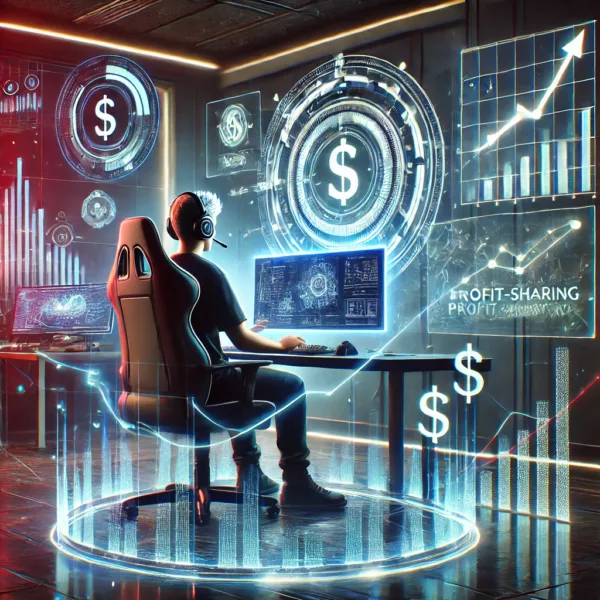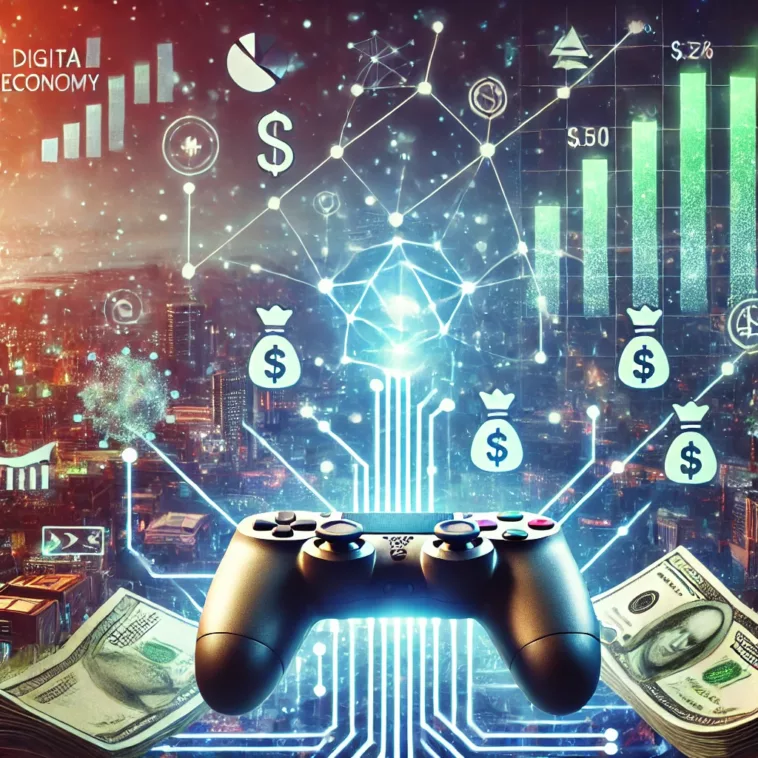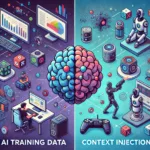Alright, gamers, buckle up. We’re about to dive into the next evolution of gaming—not the “next-gen” consoles, not some VR headset that makes you look like a techie fly, but something a lot bigger: getting paid to play. Yep, we’re talking about profit-sharing, and it’s not some pipe dream cooked up in a Reddit forum. This could actually be the future of gaming and, if you squint hard enough, the future of everything.
To understand why gamers getting a cut of the profits is about to be a thing, we need to take a step back. Let’s talk economics. I know, I know, economics is usually about as interesting as a loading screen on dial-up internet, but stay with me. This is about you making money while playing video games, so it’s worth the trip.
The Economy: From Factories to Fortnite
Once upon a time (in a galaxy not that far away), we had something called a production economy. This was the era when people made stuff. Factories! Assembly lines! Sweat on your brow! Hard work was rewarded, and if you worked enough, you got to buy a house and maybe a couple of nice vacations. Simpler times.
But then, because humanity apparently loves to make things complicated, we shifted into a service economy. Now people weren’t just building things; they were offering services. Fixing your car, serving your coffee, delivering your pizza—most jobs involved, well, doing things for other people. It wasn’t bad, but the house-and-vacation thing got a little harder to reach.
Then—wait for it—we moved into what’s called the entertainment economy. This is where things get interesting. This is when your job might not be to build or serve but to capture attention. And this is where gaming comes into play (pun very much intended). In this economy, attention is the currency. The more eyeballs you have, the more valuable you are. It’s why influencers are selling detox teas and million-dollar smiles on Instagram. We now live in a world where your ability to hold someone’s attention can be more valuable than building something. Strange, right?
The Rise of Attention as Currency
Here’s the kicker: attention isn’t just valuable, it’s the most valuable thing. It’s why advertisers are willing to fork over insane amounts of cash for a 30-second Super Bowl ad, why Netflix will keep pumping out shows no matter how much it costs. And guess what? Video games are pretty much black holes for attention. They suck people in for hours, days, weeks—sometimes their entire lives.
Right now, the only people cashing in on all this attention are the game developers, publishers, and a few streamers with Dorito sponsorships. But think about it—who’s putting in the real time? You, me, your cousin who hasn’t left the basement since “Elden Ring” dropped. We’re the ones investing hours and hours into these worlds. Why shouldn’t we get a cut?
AI and the Future of Work: What Happens When Your Job Disappears?
Let’s pivot to the future—more specifically, how AI is going to take our jobs and turn the economy upside down. I know what you’re thinking: “Oh great, robots are going to steal my job and now I can’t even afford the microtransactions in FIFA.” But hang tight. This might actually be the part where things get interesting. When AI starts doing all the boring stuff—like accounting, driving, customer service (maybe even writing a blog post or two)—a lot of traditional jobs will disappear.
What happens when machines take over the grunt work? People are going to have a lot more free time on their hands. We’re talking about a society where most of us are no longer required to work 9 to 5 to survive. Instead, we’ll be spending our time entertaining ourselves. And here’s the crazy part: that entertainment? It’s going to become the new form of labor. Attention will be the thing people compete for, and that’s where gaming comes in.
The Player Becomes the Product: Gaming’s New Economic Frontier
Here’s the wild part: as our attention becomes more valuable, the power shifts. Game developers won’t just be making money off of us buying games or shelling out for in-game skins. They’re going to need to incentivize us to keep playing, to keep paying attention. And that’s where profit-sharing comes in.
Imagine a game that doesn’t just reward you with virtual coins or cosmetic outfits, but with actual, tangible money. Your time, your skill, your attention all being rewarded in cold, hard cash. It’s not just a game anymore—it’s an economic system. You grind, you play, you contribute to the in-game economy, and you get a real-world paycheck at the end of the month. Suddenly, your mom telling you to get off the Xbox and find a real job sounds ridiculous, because, well, your gaming is your job.
We’re already seeing early versions of this with things like play-to-earn games and blockchain-based economies, but that’s just scratching the surface. Once big players like Activision, EA, and Ubisoft realize there’s money to be made by sharing the wealth with gamers, this will be the norm.
Profit Sharing as the Logical Evolution of Gaming
So, what does this mean for the future of gaming? It means that profit-sharing isn’t just some radical idea—it’s the logical next step. Right now, games are already monetizing every second of your attention. They’re selling your data, they’re selling ads, they’re selling you on the idea that you need to keep playing. But when attention becomes the most valuable currency in the world, gamers will start to demand a cut of the action.
Think about it: if you’re spending 100 hours in a game and helping drive the economy of that game’s world, shouldn’t you get a piece of that? As more people wake up to this idea, gaming companies will have no choice but to adapt or lose their player base.
Profit-sharing won’t just be a feature; it’ll be a necessity. Games will become ecosystems, where your participation makes you a shareholder. And that’s when we’ll see the ultimate revolution in gaming economics: players being compensated for their time and attention.
The Time is Now for Paid 2 Play

To wrap this all up—because I know you probably have a raid to get to—let’s put it simply: the future of gaming isn’t just about better graphics or more realistic physics engines. It’s about turning your time into money. We’re living in a world where attention is the new gold mine, and gamers are sitting on a massive reserve of it.
As AI takes over traditional jobs and the entertainment economy rises to meet the demands of a time-rich society, profit-sharing in gaming isn’t just possible—it’s inevitable. So, the next time you’re grinding through a game, remember: in the not-so-distant future, that grind could be lining your pockets, not just the game developer’s.
Now, if you’ll excuse me, I need to check my Playtime to Profit Ratio in WoW Classic.



